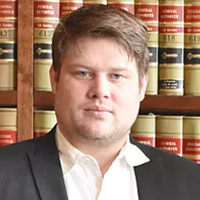Devils Tower Criminal Lawyer, Wyoming
Sponsored Law Firm
-
 x
x

Click For More Info:
-
Hughes Law Office
113 North 3rd St Sundance, WY 82729» view mapDivorce & Family, Criminal, Estate Working Relentlessly For You
Let Hughes Law Office handle your legal matters today!
800-960-0161
Not enough matches for Devils Tower Criminal lawyer.
Below are all Devils Tower lawyers.
Mark L. Hughes
✓ VERIFIEDDivorce & Family Law, Estate, Criminal, Accident & Injury, Lawsuit & Dispute
Mark Hughes is a practicing lawyer in the state of Wyoming. Attorney Hughes received his J.D. from the University of Wyoming College of Law in 1978.
Derek Allen Thrall
✓ VERIFIEDCriminal, Accident & Injury, Workers' Compensation
Derek grew up in Gillette, Wyoming and graduated from Campbell County High School in 2009. He went on to attend the University of Wyoming and graduat... (more)
Kara Lorraine Ellsbury
Litigation, Energy, Employee Rights, Personal Injury
Status: In Good Standing Licensed: 14 Years
 Mark Hughes Sundance, WY
Mark Hughes Sundance, WY Practice AreasExpertise
Practice AreasExpertise




